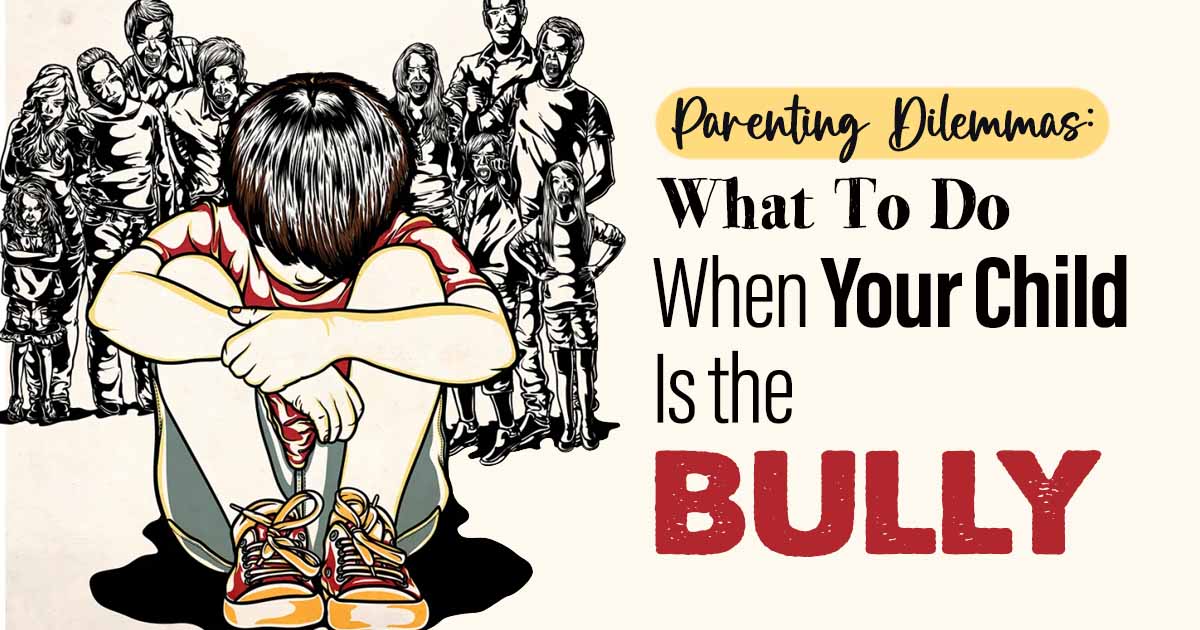Bullying is a pervasive issue in schools, and while much of the focus is often on supporting victims, it’s equally important to address the behavior of the bullies themselves. Discovering that your child is bullying others can be a distressing revelation for any parent. However, it’s crucial to approach bullying behavior in children with empathy, understanding, and a commitment to change.
Recognizing Bullying Behavior In Children
The first step in addressing the issue is recognizing what constitutes bullying behavior. Bullying behavior in children typically involves repetitive aggressive actions aimed at causing harm or distress to others.
It can be physical, verbal, or relational. Examples include physical intimidation, name-calling, spreading rumors, exclusion, and cyberbullying. It’s essential to distinguish normal childhood conflicts from bullying, as addressing bullying requires a more intentional approach.
Reasons Behind Bullying Behavior In Children
Understanding the reasons behind your child’s bullying behavior is vital. Some children bully others due to a lack of empathy, while others may do so to gain power, control, or attention. In some cases, they may be modeling behavior they’ve witnessed elsewhere. Knowing the underlying motivations can help in tailoring an effective intervention plan.
Steps To Address Bullying Behavior In Children
Consider the following steps to address bullying behavior in children:
1. Open Communication
Initiate a conversation with your child about the behavior you’ve observed or the reports you’ve received from the school. It’s essential to create a non-judgmental and safe space where your child can express their thoughts and feelings. Ask them about their actions, their reasons, and how they perceive the impact of their behavior on others.
2. Avoid Blame
While it’s important to address the behavior, avoid placing blame solely on your child. Bullying behavior can result from various factors, including peer pressure, low self-esteem, or emotional issues. Instead, focus on understanding the underlying causes and helping your child make better choices.
3. Set Clear Expectations
Clearly communicate your expectations regarding behavior and the consequences of bullying. Emphasize the importance of empathy, respect, and kindness toward others. Make it clear that bullying is unacceptable and comes with consequences, both at home and school.
4. Seek Professional Guidance
Consider involving a professional, such as a counselor or therapist, who can work with your child to understand the root causes of their behavior and provide strategies for change. A trained professional can offer insights and support that parents may not be equipped to provide.
Strategies For Changing Bullying Behavior In Children
Consider the following strategies for changing bullying behavior in children:
1. Encourage Empathy
Help your child develop empathy by discussing how their actions affect others. Encourage them to imagine themselves in the victim’s shoes. Share stories or examples of kindness and empathy to illustrate the positive impact of such behavior.
2. Teach Conflict Resolution
Teach your child healthy ways to manage conflicts and disagreements. Provide them with problem-solving skills and alternative methods to express their feelings or frustrations without resorting to bullying. Role-play different scenarios to practice conflict resolution.
3. Monitor Online Activity
In the digital age, it’s crucial to monitor your child’s online activity to prevent cyberbullying. Set clear guidelines for responsible internet use and discuss the potential consequences of online harassment. Encourage open communication if they encounter bullying online or if they engage in it themselves.
4. Promote Positive Friendships
Encourage your child to develop positive and healthy friendships. Surrounding themselves with peers who exhibit empathy and kindness can influence their behavior positively. Be involved in their social life to ensure they are making friends who support their personal growth.
5. Be A Role Model
Children learn by example, so it’s essential to model respectful and empathetic behavior in your own interactions with others. Demonstrating empathy and resolving conflicts in a healthy manner at home can reinforce these values in your child.
Collaboration With School To Address Bullying Behavior In Children
Collaboration with your child’s school is crucial. Reach out to teachers, counselors, or administrators to discuss the situation and develop a plan for addressing the bullying behavior. Schools often have resources and programs in place to address bullying and can provide valuable guidance.
Comply with the school’s policies and guidelines regarding bullying. This may involve attending meetings or participating in counseling sessions, as required. Be proactive in supporting the school’s efforts to curb bullying.
Monitoring Progress In Addressing Bullying Children
Maintain open and regular communication with your child regarding their behavior. Discuss their progress and any challenges they may be facing in changing their conduct. Encourage them to share their feelings and experiences with you. Recognize and celebrate any positive changes and instances where your child exhibits kindness and empathy.
Positive reinforcement can motivate them to continue making better choices. Remember that with the right support, guidance, and understanding, your child can learn to replace bullying behavior with empathy and respect for others, ultimately becoming a more responsible and compassionate individual.


